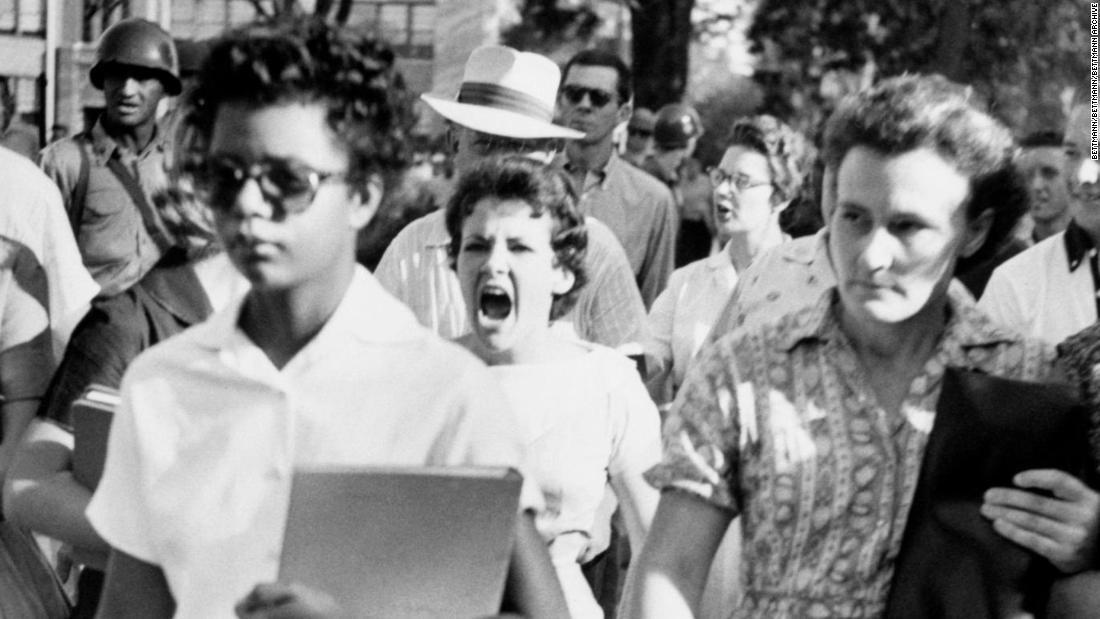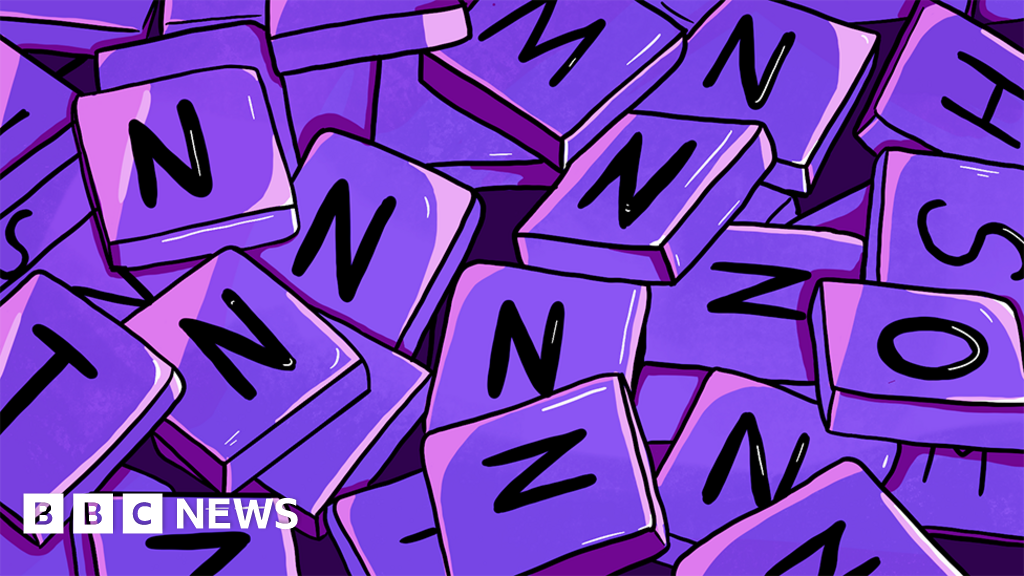Can Mexicans Say The N Word? A Deep Dive Into Cultural Sensitivity And Language
Let’s cut to the chase here: can Mexicans say the N word? This question has sparked heated debates across social media platforms, dinner tables, and even academic circles. It’s not just about words—it’s about history, power dynamics, and cultural understanding. In today’s world where conversations around race and identity are more important than ever, diving deep into this topic feels necessary. So buckle up because we’re about to explore some uncomfortable truths.
Let’s face it, language is tricky. What might seem harmless to one person could be deeply offensive to another. The N word carries centuries of pain and oppression for Black communities, but its usage has evolved in recent years within certain cultural contexts. However, when it comes to non-Black individuals using it—regardless of their ethnicity or background—it opens a whole can of worms.
Now, before we get too far ahead of ourselves, let’s establish why this conversation matters. Words have weight, and they shape how we perceive each other. If you’re Mexican or identify as Latinx, asking whether you can use the N word isn’t just about linguistic freedom—it’s about respecting boundaries and acknowledging systemic inequalities that still exist today. Ready? Let’s dive in.
Read also:Lelasoha Erome The Rising Star In The Spotlight
Here’s what we’ll cover:
- Biography of Key Figures
- A Brief History of the N Word
- The Cultural Impact on Mexicans
- Understanding Power Dynamics
- Common Misconceptions
- How Language Has Evolved
- Community Voices and Perspectives
- Guidelines for Respectful Dialogue
- Potential Solutions and Actions
- Final Thoughts
Biography of Key Figures
Before we jump into the nitty-gritty, it’s worth highlighting some key voices in this conversation. People like Angela Davis, Ta-Nehisi Coates, and even celebrities like Cardi B have weighed in on the subject. While they may not directly address Mexicans using the N word, their insights provide valuable context.
Angela Davis
Angela Davis is a civil rights activist whose work focuses on racial justice and prison abolition. Her writings often emphasize the importance of language in perpetuating systemic racism. Though she doesn’t explicitly discuss Latinx usage of the N word, her thoughts on power structures resonate deeply.
| Name | Occupation | Key Contributions |
|---|---|---|
| Angela Davis | Civil Rights Activist, Scholar | Advocated for racial equality and prison reform |
| Ta-Nehisi Coates | Journalist, Author | Wrote "Between the World and Me," exploring Black identity |
| Cardi B | Rapper, Businesswoman | Publicly addressed the N word’s usage in hip-hop culture |
A Brief History of the N Word
Alright, let’s rewind a bit. The N word originated during the transatlantic slave trade, serving as a tool of dehumanization for enslaved Africans. Over time, it became synonymous with hatred and brutality. But here’s the twist—some Black communities have reclaimed it as a term of endearment or empowerment. That reclamation, however, doesn’t erase its painful origins.
For Mexicans and other non-Black groups, the question arises: Can we participate in this reclamation? Spoiler alert—the answer is complicated. Let’s break it down.
The Cultural Impact on Mexicans
Mexicans, like many Latinx groups, often navigate complex racial identities. Some Mexicans may have Indigenous, African, or European ancestry, making their relationship with race fluid and multifaceted. This diversity sometimes leads to misunderstandings about who has the right to use racially charged words.
Read also:Uncensored Manhwa A Deep Dive Into The World Of Adult Korean Comics
Here’s the kicker: just because someone identifies as Mexican doesn’t mean they automatically understand the nuances of Black American history. Cultural appropriation becomes a real concern when people use terms without fully grasping their significance.
Understanding Power Dynamics
Let’s talk about power. The N word was born out of oppression, and its continued use by non-Black people perpetuates harm. When Mexicans—or anyone else—use it casually, they ignore the historical trauma tied to it. It’s like walking into someone else’s house and rearranging their furniture without permission.
Think about it this way: if a group of friends invites you to their party, it’s polite to respect their rules. Similarly, the N word belongs to the Black community, and outsiders need to tread carefully.
Why Boundaries Matter
- Respect for cultural ownership
- Recognition of historical struggles
- Prevention of further marginalization
Common Misconceptions
There are plenty of myths floating around about the N word. For instance, some argue that rappers using it legitimizes its use by others. Others believe that being friends with Black people gives them a free pass. Spoiler alert—none of these excuses hold water.
Here’s the deal: just because someone says something doesn’t mean it’s okay for everyone else to follow suit. Language is contextual, and intent matters. Using the N word without understanding its weight is akin to wearing a costume during Halloween—you might think it’s fun, but it’s disrespectful.
How Language Has Evolved
Language is constantly changing, and the N word is no exception. In recent years, many Black artists and activists have reclaimed it as a form of resistance. But here’s the thing—reclamation is a delicate process that requires trust and solidarity. Outsiders stepping in can disrupt that progress.
Consider this analogy: imagine a group of friends rebuilding a broken fence. If someone who wasn’t part of the original group starts adding random planks, it disrupts the structure. Similarly, non-Black people using the N word can derail the healing process.
Community Voices and Perspectives
So, what do real people think? Social media is full of debates on this topic. Some Mexicans argue that they shouldn’t be excluded from using words they’ve heard in music or pop culture. Others acknowledge the harm and advocate for education instead.
One Twitter thread stood out to me. A user named @LatinaQueen tweeted, “Just because I’m Mexican doesn’t mean I get a pass to say the N word. It’s not my word to reclaim.” Another user replied, “Exactly! Respect the boundaries.” These conversations highlight the importance of listening to those most affected.
Guidelines for Respectful Dialogue
If you’re unsure where you stand, here are a few guidelines:
- Listen more than you speak
- Educate yourself on Black history
- Acknowledge your privilege
- Be open to feedback
Remember, it’s okay to make mistakes as long as you learn from them. Nobody’s perfect, but showing genuine effort goes a long way.
Practical Steps
Start by reading books like "Stamped from the Beginning" by Ibram X. Kendi or watching documentaries like "13th" by Ava DuVernay. Engage with content created by Black voices and amplify their messages. Small actions can lead to big changes.
Potential Solutions and Actions
Now, let’s talk solutions. How can we create a world where everyone feels respected and heard? First, we need to dismantle systemic racism. Second, we need to foster empathy and understanding across cultures. Third, we need to hold ourselves accountable.
For Mexicans and other non-Black individuals, this means refraining from using the N word unless explicitly invited to do so by the Black community. It also means standing up against racism when we see it, whether it’s in our families, workplaces, or social circles.
Final Thoughts
In conclusion, can Mexicans say the N word? The answer is nuanced, but ultimately, it boils down to respect and awareness. Words carry power, and using them thoughtlessly can cause harm. By educating ourselves and listening to those most affected, we can build a more inclusive society.
So, what’s next? Leave a comment below sharing your thoughts. Share this article with friends who might benefit from the conversation. And most importantly, keep learning. Because the journey toward equality isn’t a destination—it’s a lifelong commitment.
Until next time, stay woke and keep the dialogue alive!


